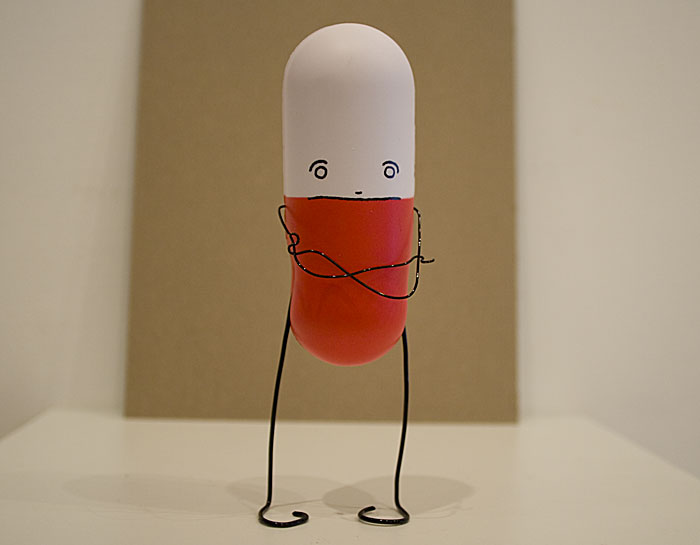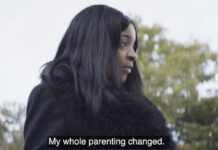New research adds to the gamut of complex considerations for soon-to-be mothers. A recent study, published in European Psychiatry, finds a notable relationship between prenatal selective serotonin reuptake inhibitor (SSRI) exposure and offspring diagnosis of Autism Spectrum Disorder (ASD).
Using a combination of meta-analysis and systematic review procedures, Sasan Andalib and colleagues, in an international collaboration between Denmark and Iran, were able to zero in on a link that had previously been identified in smaller, individual studies, by analyzing such studies in aggregate. They write:
“SSRIs have become the most widely used antidepressants. They are also utilized to treat or preclude depression in pregnancy, notwithstanding being a contentious issue in current psychiatry. Despite a number of studies investigating the link between prenatal exposure to SSRIs and ASD, attention has thus far been [too] scattered to reach a general consensus.”

A substantial body of literature to-date (chronicled over the years through MIA coverage) has solidified some of the unique risks of pharmacological intervention in pregnancy. Risks associated with antidepressant use in pregnancy, prenatal exposure to psychotropic medication, prenatal antipsychotic exposure, and other related topics have been explored at length.
SSRIs, the most commonly prescribed form of antidepressant, are not only used in pregnancy by individuals who have previously responded well to their effects, but also for the first time for those experiencing depression beginning in pregnancy. One study in 2014 concluded that children with ASD diagnoses were three times more likely than their typically-developing peers to have mothers who had been prescribed SSRIs in pregnancy. The added contribution of the recent work by Andalib and team is its integration of multiple studies conducted over time, across multiple populations.
Criteria for eligibility for Andalib and colleagues’ investigation included: 1) case-control or cohort study designs with extractable estimates of maternal SSRI prescription in samples of patients diagnosed with ASD compared a non-ASD control group, and 2) studies that had been published in English. Unpublished data and articles with irregularities in reporting modality were excluded.
Following a comprehensive, systematic review of literature, and the selection of seven eligible articles, analyses were conducted to evaluate the heterogeneity of within- and between-study variability, and to calculate the pooled effect size of maternal SSRI exposure in relation to ASD diagnosis.
Andalib et al. included seven studies in their review that had explored the relationship between SSRI use in pregnancy and ASD, and that satisfied more comprehensive inclusion criteria. Six of the seven studies reviewed established a significant relationship between maternal SSRI exposure and offspring with ASD diagnoses. Further, pooled odds ratio results reflected a significant association between these two variables.
Results indicated that the odds of having a mother who had been exposed to SSRIs while pregnant were 82% greater for those diagnosed with ASD than those without. It is important to note that three Danish studies weighed heavily on this outcome, and the study did not control for their influence.
Findings from this meta-analysis and systematic review synthesize what has been done, and lay the foundation for appropriate next steps in research related to antidepressant use during pregnancy. There are potential confounding factors beyond the scope of Andalib and team’s investigation that warrant further exploration, such as maternal psychological characteristics, and other drug-use simultaneous or concurrent with the use of SSRIs. However, this study has alarming stand-alone implications for prescribers and future parents.
****
Andalib, S., Emamhadi, M., Yousefzadeh-Chabok, S., Shakouri, S., Høilund-Carlsen, P., Vafaee, M., & Michel, T. (2017). Maternal SSRI exposure increases the risk of autistic offspring: A meta-analysis and systematic review. European Psychiatry, 45, 161-166. (Link)















There is accumulating evidence causing concern regarding potential adverse outcomes of antidepressant drugs during pregnancy.
SSRIs have been reported to produce sexual dysfunction in all those who take them.
In some there is persistent sexual dysfunction which may last for years. This is devastating to those affected.
The RxISK PRIZE website makes reference to genital numbing causing PSSD, and also persistent genital arousal syndrome- PGAD.
We need to know what effects the maternal use of SSRIs might or might-not have on in-utero foetal genital development, and post-partum genital development and maturation in the infant, child and adolescent.
Whilst this observation might be considered speculative, it is at least a theoretical, potential teratogenicity worthy of investigation, and exclusion if disproven.
TRM 123. Retired Consultant Physician.
Report comment
I believe SSRI s (contrary to other drugs) were promoted as safe during pregnancy when there was no evidence to support that they were, and that ‘depression’ was promoted as a ‘dangerous illness’ when most of the time its not.
There are lots of young people around that mightnt be disabled with “autism”, but are not 100% – which matches up with the common use of antidepressants in the past 20 years.
Report comment
In particular, “Pospartum Depression” has been massively promoted as a “disease state” when the vast majority of cases consist of very understandable reactions to difficult life circumstances and the incredible lack of support available for new moms in our culture. My wife did some research on this and found that there are cultures where there is practically zero incidence of “postpartum depression.” Not surprisingly, these cultures put a big emphasis on supporting new moms in doing their job as parents so they don’t have to do much of anything besides spending all their time and energy learning how to care for themselves and their new babies.
Report comment
No doubt these drugs are toxic and useless, but could it also indicate that a depressed and disengaged mother can have a significant impact on a child’s attachment to others and subsequent social development?
Report comment
Maybe. But you have to remember that “depression” is a diagnosis made on subjective criteria that are usually based on self-reports. These criteria are ever widening with criteria that could apply to every person at some point in their lives. We do know, as well, that anti-depressants make people more ill (disrupt serotonin, metabolic instability, cause agitation and increase suicidal thoughts, etc). The long term use of these drugs may be what maintains the depression (especially the social isolation factor) first reported along with the dis empowering idea that one is “ill”.
Report comment
They were looking at those taking SSRIs, not depressed moms in general. Plus we know the autism rate has skyrocketed since the early 90s. We also know that the SSRI prescription rate has skyrocketed since the 90s (though there are obviously many contributing factors to this). There were plenty of depressed moms in the 60s. At this point, the evidence seems pretty strong that there is a specific connection between SSRIs and later autism diagnosis.
Report comment
Leads me to question whether the moms are depressed because of neuroinflammation, and the seek out drugs to try to mask the symptoms of a deficient microbiome that fuels the neuroinflammation. https://www.ncbi.nlm.nih.gov/pubmed/26733805 http://www.sciencedirect.com/science/article/pii/S2352289515300370
Then they give birth to children who not only get insufficient microbes during the birth process, but have been bathed in SSRIs in utero. What do you get? Guaranteed neuroinflammation, which is a hallmark of autism. https://www.ncbi.nlm.nih.gov/pmc/articles/PMC4717322/
Report comment
No big shock. SSRIs are linked to homicides, suicides, serious withdrawal syndrome, Tardive dysphoria, PSSD, to some birth defects, and now autism. Have I missed anything?
And GP’s are handing them out like harmless candy. Why are they not aware and informed?
Report comment
Because there’s a big cover up job.
GPs were prescribing these drugs in good faith (without full relevant information). If the drugs go down then the GPs go down as well.
Report comment
People ask me what my caseload (speech pathology) looked like back when I started in practice – in the 1970s. I tell them I served a large cachement area (the preschoolers were brought in by bus) and had exactly one child with autism.
Astonishing that physicians would say it’s okay for pregnant women to take medications for any circumstance at all.
Report comment